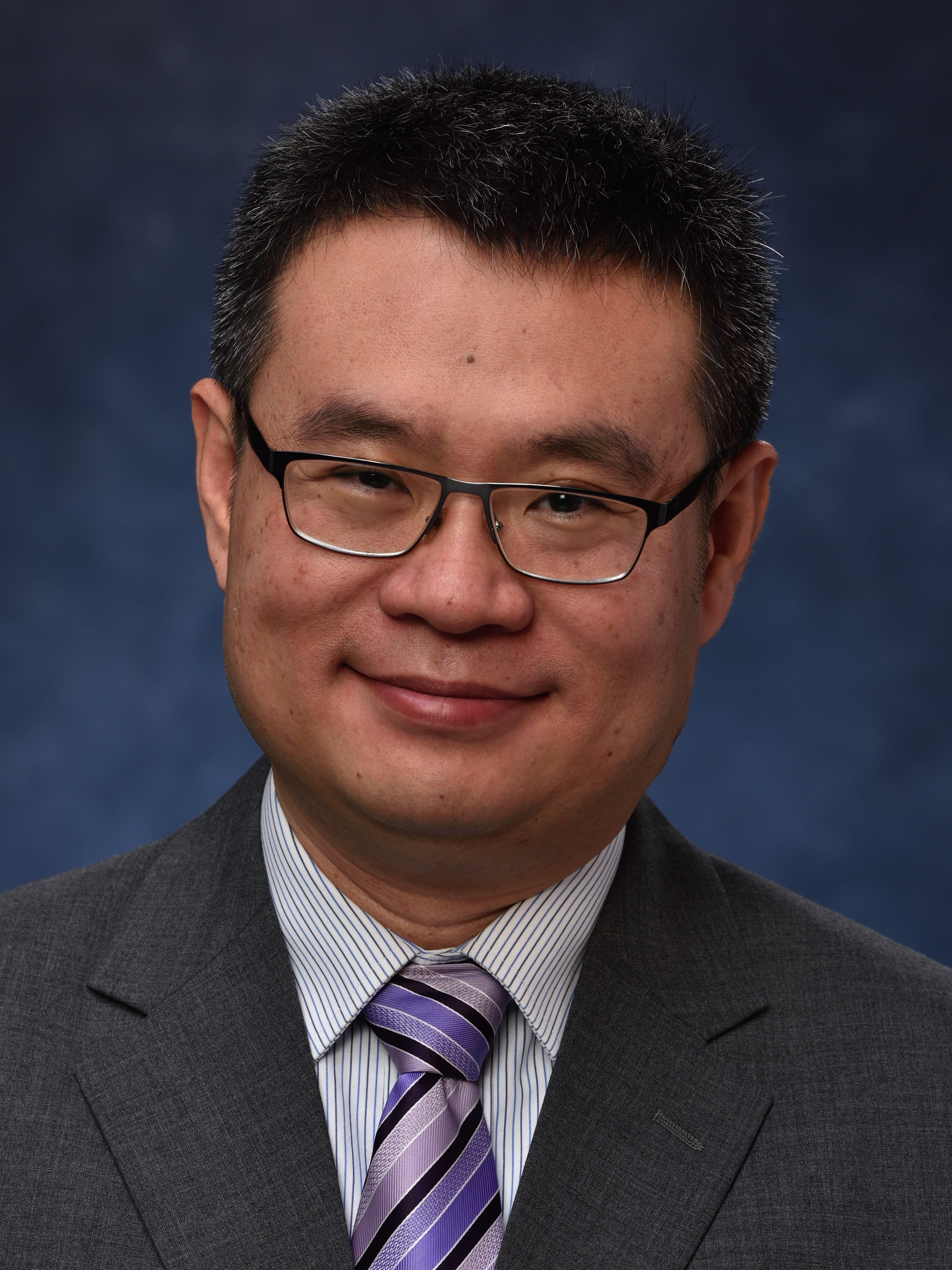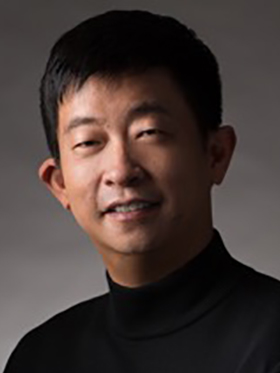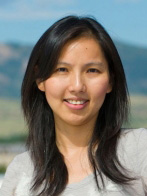






Yiran Chen (IEEE Fellow)
Professor, Duke University, USA.
Title: An introduction of machine learning acceleration and neuromorphic computing
Time: 13:30 - 15:30, Monday February 18, 2019
Abstract:
Fast growth of the computation cost associated with training and testing of deep neural networks (DNNs) inspired various acceleration techniques. Reducing topological complexity and simplifying data representation of neural networks are two approaches that popularly adopted in deep learning society However, the practical impacts of hardware design are often ignored in these algorithm-level techniques, such as the increase of the random accesses to memory hierarchy and the constraints of memory capacity. On the other side, the limited understanding about the computational needs at algorithm level may lead to unrealistic assumptions during the hardware designs. In this talk, we will discuss this mismatch and show how we can solve it through an interactive design practice across both software and hardware levels. We will also introduce some efforts that spent on searching for bio-inspired computing model as well as the emerging post-CMOS circuitry for improving computational efficiency of machine learning and neuromorphic computing applications.
Biography:
Yiran Chen received B.S and M.S. from Tsinghua University and Ph.D. from Purdue University in 2005. After five years in industry, he joined University of Pittsburgh in 2010 as Assistant Professor and then promoted to Associate Professor with tenure in 2014, held Bicentennial Alumni Faculty Fellow. He now is a tenured Associate Professor of the Department of Electrical and Computer Engineering at Duke University and serving as the director of NSF Industry-University Cooperative Research Center (IUCRC) for Alternative Sustainable and Intelligent Computing (ASIC) and co-director of Duke Center for Evolutionary Intelligence (CEI), focusing on the research of new memory and storage systems, machine learning and neuromorphic computing, and mobile computing systems. Dr. Chen has published one book and more than 350 technical publications and has been granted 93 US patents. He serves or served the associate editor of several IEEE and ACM transactions/journals and served on the technical and organization committees of more than 50 international conferences. He received 6 best paper awards and 12 best paper nominations from international conferences. He is the recipient of NSF CAREER award and ACM SIGDA outstanding new faculty award. He is the Fellow of IEEE.

Schahram Dustdar (member of Academia Europaea, IEEE Fellow)
Professor, TU Wien, Austria
Title: Paradigmatic Research Challenges in IoT Systems Engineering
Time: 16:00 - 18:00, Monday February 18, 2019
Abstract:
This talk explores the research challenges in the domain of IoT from multiple angles and reflects on the urgently needed collective efforts from various research communities to collaborate on those. Our approach fundamentally challenges the current thinking and understanding of scientific, technological, and political paradigms in tackling the engineering of IoT systems. We discuss technical paradigms and research challenges in the domains of Cloud and Edge Computing as well as the requirements of people in such systems. We will explore how these novel approaches impact application composition utilizing AI and Edge Computing.
Biography:
Schahram Dustdar is Professor of Computer Science heading the Distributed Systems Group at the Technical University of Vienna. From 2004-2010 he was also Honorary Professor of Information Systems at the Department of Computing Science at the University of Groningen (RuG), The Netherlands. From 1999 - 2007 he worked as the co-founder and chief scientist of Caramba Labs Software AG in Vienna (acquired by Engineering NetWorld AG), a venture capital co-funded software company focused on software for collaborative processes in teams. Caramba Labs was nominated for several (international and national) awards: World Technology Award in the category of Software (2001); Top-Startup companies in Austria (Cap Gemini Ernst & Young) (2002); MERCUR Innovationspreis der Wirtschaftskammer (2002).
From Dec 2016 until Jan 2017 he was a Visiting Professor at the University of Sevilla, Spain and from January until June 2017 he was a Visiting Professor at UC Berkeley, USA. He is co-Editor-in-Chief of the new ACM Transactions on the Internet of Things as well as Editor-in-Chief of Computing (Springer). He is an Associate Editor of IEEE Transactions on Services Computing, IEEE Transactions on Cloud Computing, ACM Transactions on the Web, and ACM Transactions on Internet Technology, as well as on the editorial board of IEEE Internet Computing and IEEE Computer. Dustdar is recipient of the ACM Distinguished Scientist award (2009), the IBM Faculty Award (2012), an elected member of the Academia Europaea: The Academy of Europe, where he is chairman of the Informatics Section, as well as an IEEE Fellow (2016).

Zhu Han (IEEE Fellow)
Professor, University of Houston, USA
Title: Signal Processing for Big Data Analytics
Time: 10:00 - 12:00, Monday February 18, 2019.
Abstract:
The aim of this tutorial is to bring together signal processing engineers, computer and information scientists, applied mathematicians and statisticians, as well as systems engineers to carve out the role that analytical and experimental engineering has to play in Big Data research and development. This proposal will emphasize on signal analytics, networking, computation, optimization, as well as systems engineering aspects of Big Data. There are four main objectives. The first objective is to provide an introduction to the big data paradigm, from the signal processing perspective. The second objective is to introduce the key techniques to enable signal processing for big data in a comprehensive way. The third objective is to provide numerical datasets, and illuminate how signal processing approaches can be addressed to wireless datasets. The fourth objective is to present the state-of-the-art big data applications. This will include classifications of the different schemes and the technical details in each scheme.
Biography:
Zhu Han received the B.S. degree in electronic engineering from Tsinghua University, in 1997, and the M.S. and Ph.D. degrees in electrical engineering from the University of Maryland, College Park, in 1999 and 2003, respectively. From 2000 to 2002, he was an R&D Engineer of JDSU, Germantown, Maryland. From 2003 to 2006, he was a Research Associate at the University of Maryland. From 2006 to 2008, he was an assistant professor in Boise State University, Idaho. Currently, he is a John and Rebecca Moores Professor in Electrical and Computer Engineering Department as well as Computer Science Department at University of Houston, Texas. His research interests include security, wireless resource allocation and management, wireless communications and networking, game theory, and wireless multimedia. Dr. Han is an NSF CAREER award recipient 2010. Dr. Han has several IEEE conference best paper awards, and winner of 2011 IEEE Fred W. Ellersick Prize, 2015 EURASIP Best Paper Award for the Journal on Advances in Signal Processing and 2016 IEEE Leonard G. Abraham Prize in the field of Communications Systems (Best Paper Award for IEEE Journal on Selected Areas on Communications). Dr. Han has been IEEE fellow since 2014 and IEEE Distinguished Lecturer since 2015. Dr. Han is 1% highly cited researcher according to Web of Science since 2017.

Liuqing Yang (IEEE Fellow)
Professor, Colorado State University, USA
Title: Collective Intelligence for Situational Awareness in Autonomous Driving
Time: 10:00 - 12:00, Thursday, February 21, 2019
Abstract:
TBD
Biography:
Dr. Liuqing Yang received her Ph.D. degree in Electrical and Computer Engineering from the University of Minnesota, Minneapolis, in 2004. She is presently a Professor with Colorado State University. Her general interests are in signal processing with applications to communications, networking and power systems - subjects on which she has published more than 290 journal and conference papers, 3 book chapters and 3 books. Dr. Yang became an IEEE Fellow in 2014. She was the recipient of the ONR Young Investigator Program (YIP) award in 2007, the NSF Faculty Early Career Development (CAREER) award in 2009, the Best Paper Award at the IEEE ICUWB'06, ICCC'13, ITSC'14, Globecom'14, ICC'16, and WCSP'16. She is currently serving as the editor in chief for IET Communications.